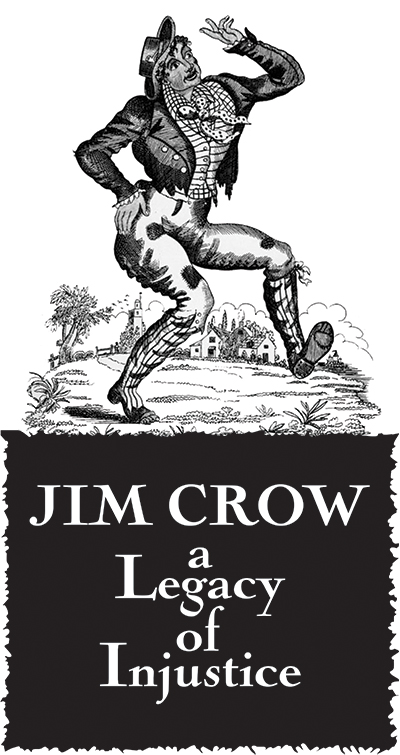
“To our most bitter opponents we say: ‘We shall match your capacity to inflict suffering by our capacity to endure suffering. We shall meet your physical force with soul force. Do to us what you will, and we shall continue to love you. We cannot in all good conscience obey your unjust laws, because noncooperation with evil is as much a moral obligation as is cooperation with good. Throw us in jail, and we shall still love you. Bomb our homes and threaten our children, and we shall still love you. Send your hooded perpetrators of violence into our community at the midnight hour and beat us and leave us half dead, and we shall still love you. But be ye assured that we will wear you down by our capacity to suffer. One day we shall win freedom, but not only for ourselves. We shall so appeal to your heart and conscience that we shall win you in the process, and our victory will be a double victory.’
The long paragraph above, from Martin Luther King’s essay “Loving your enemies” is surely his response to biblical scripture in which the main tenet of Christianity to “love thy neighbour as thyself” is stress-tested to extremes in the civil rights movement’s strongest card: that Black (then called Negro, and much worse) Americans should rise above the injustice that was being meted out upon them.
Jim Crow American ‘culture’ (pah!) and ‘politics’ (more accurate) was so obscenely in violation of basic human rights as to make the “land of the free” as much a work of fiction as the gospels. But King’s advocation of noncooperation with evil, the absolute root cause and ultimately the ace card of the civil rights movement, was what made it, and him, irresistible – good will eventually triumph over evil and if good transcends (through violence and hatred) into a mirror image of its perpetrators’ behaviour then stalemate, or worse, will result.

Taking the moral high ground may well have been the ace to play. But it needed played with dignity, clarity, consistency and conviction. The hallmarks of King.
Today we live in an America where its President would luxuriate in the heady glow of Jim Crow time, where his racial hatred would be given an outlet in which he could fully exploit his white supremacy. He could read his nazi doctrine to the nation free from the shackles of wokeness. His wall would have long been complete.
So, the irony of his marriage to an immigrant. The irony that Germany is possibly the high water mark, as a nation, in humanitarian treatment of minority peoples, people without a land to call their own cannot be overlooked. The war against oppression is no longer the war against hitler. And America can no longer wipe its hands of Jim Crow.

The fact that a fascist is in power, despite all that Colson Whitehead tells us of in the pages of the Nickel Boys, is America’s shame. And having hosted many ‘Democratic’ Americans in our home, as Air BnB hosts, my wife and I are very aware of the shame that they carry around the globe on their hunched, apologetic shoulders.
The criminal that is the current POTUS is an ugly stain upon the integrity of what was (largely but by no means exclusively) a great nation until 2016, and will be again I’m sure.
Well, it will be a great nation when, once and for all, it rids itself of its institutionalised racism. Not in every corner, but in enough of them for it to still matter, to still manifest itself through police brutality and murder of innocent victims: murdered black children, women and men who were the consequences of shoot first, ask later.
This has to stop and anyone who has any shred of belief in my view will find it cemented further by reading The Nickel Boys.

It’s a short novel and a fictitious account of the life of one man (two in truth) whose very existence is entirely defined by racism. Elwood, the main protagonist, is a black American, brought up in Tallahassee, Georgia.
We meet him, aged around 10, in 1962. His maternal grandmother has just bought him the greatest gift of his life, a record of the speeches of Martin Luther King, featuring extracts from his Loving Your Enemies Essay.
Little could the bright, ambitious and bookish young Elwood know that cruel fate and prejudice would thrust him centre stage into that essay.
For spoiler reasons I won’t tell you how teenage Elwood ends up, not in college, but in the young offenders institution called Nickel. Nearly sixty years later an unmarked burial ground of battered and scarred young black men’s bodies has been found by property developers.
Not battered, no. Tortured.
It triggers a return to the haunting ground.
What marks out Whitehead’s writing as equal only, in my view, to Cormac McCarthy’s is his ability to storytell about extreme subjects without resorting to, in any way, flag-waving politico.
Although this book is, cover to cover, about the injustice of racial prejudice it’s not even remotely tub-thumping. At no point does the reader think ‘if only he’d drop the politics for a bit’ and yet every single page is suffused with them.
How he does this, apart from being a peerless craftsman, is to side-eye his observations. Although this book is about life in a torture chamber of racial oppression its narrative does not dwell on this. Hitchcock’s 15 minutes of tension is worth a minute of shock is equally applied by Whitehead, except his tension is more of a contextualisation of racism where the reader sees it italicised in their peripheral vision, not up front in caps.
Hardly any of this book describes torture. Hardly any of it lists the daily criminality of the regime or the sheer burden of difficulty their lives endure. For that you’ll need to read the ice cold litany of terror that Jonathan Littel describes so shockingly through the eyes of a WWII nazi officer in the brutal “The Kindly Ones”.
No, this book riffs off, time and again, King’s essay as the oppressed inmates of Nickel strive to overcome evil. By doing good. By keeping clean. By being undetected. By righting their passage.
It’s a work of staggering genius.
Not a sentence in this novel goes to waste. Many you have to read two, three times because Whitehead may have decided 200 pages was sufficient to tell his story (in places rip-roaringly so) but no way was he going to make it easy for us.
He lays traps everywhere. He writes half sentences that pack more storytelling punch than any writer I know. You have to work it out. Sometimes you complete a paragraph and realise that buried in it were two or three words that so upend its meaning, and the book’s direction, as to entirely discombobulate you. This means you have to navigate this novel as if in a minefield. Gently, softly, guddling the trout. One false move and you’re back a chapter.
And what chapters. What vision. In one he tells, as a complete side story, but as a keystone, about the annual boxing tournament at Nickel. The competition that has been won for the last 15 years by the black kids. Yet, at no point in this hideous exemplar of racial torture are you able to double-guess the chapter’s outcome. That’s partly down to his masterful storytelling, but it’s also down to that knack he has of simply not overdoing the message despite, as I said earlier, suffusing the book with the message.
As it nears its conclusion Whitehead throws in a plot device that is so explosive, so monumental, that it made my heart skip a beat and reappraise the entire novel. It’s unprecedented in my experience and it’s what cemented this into its outcome as one of the greatest books I’ve ever read.
I mean, I really don’t think that if you have The Underground Railroad (and its Pultizer Prize) on your CV you can really expect to step up any further.
Can you?
If you’re Colson Whitehead you can.


